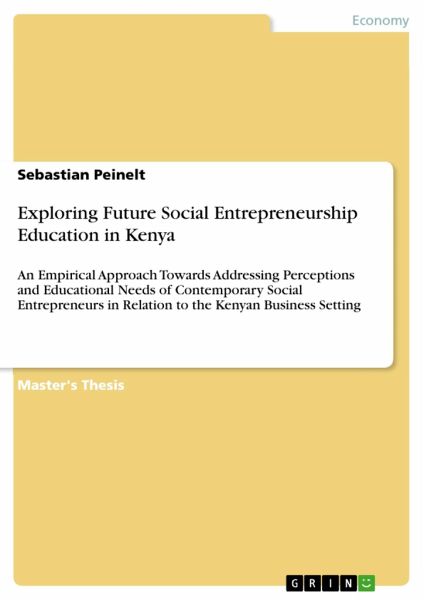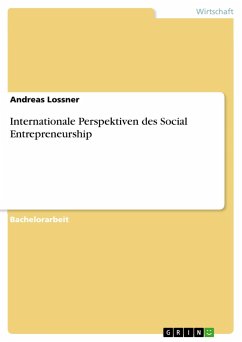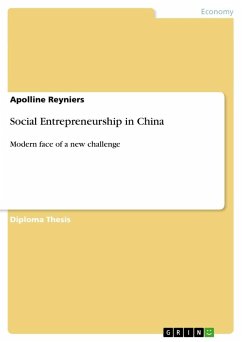
Exploring Future Social Entrepreneurship Education in Kenya
An Empirical Approach Towards Addressing Perceptions and Educational Needs of Contemporary Social Entrepreneurs in Relation to the Kenyan Business Setting
Versandkostenfrei!
Versandfertig in 1-2 Wochen
52,95 €
inkl. MwSt.

PAYBACK Punkte
0 °P sammeln!
Master's Thesis from the year 2017 in the subject Business economics - Business Management, Corporate Governance, grade: 1,6, EBS European Business School gGmbH (Lehrstuhl für Social Business), language: English, abstract: The concept of social entrepreneurship (SE) describes a process of opportunity identification, evaluation, and exploitation of mission-driven individuals towards creating social impact by successfully addressing social issues in the public or local communities. In this regard, SE practices can significantly vary in relation to the business environment, the social entreprene...
Master's Thesis from the year 2017 in the subject Business economics - Business Management, Corporate Governance, grade: 1,6, EBS European Business School gGmbH (Lehrstuhl für Social Business), language: English, abstract: The concept of social entrepreneurship (SE) describes a process of opportunity identification, evaluation, and exploitation of mission-driven individuals towards creating social impact by successfully addressing social issues in the public or local communities. In this regard, SE practices can significantly vary in relation to the business environment, the social entrepreneurs act in. With respect to the foregoing problem statement, this thesis aims at investigating how the four elements of new venture creation (i.e. individual, process, organization, environment) are understood and practiced in a Kenyan SE context. On that basis, it further examines what SE education in Kenya should embrace to address perceptions and needs of SE practitioners in relation to existent environmental dynamics (i.e. enablers and barriers) and support structures. For that purpose, the existing theory about SE is examined and the concept of SE education is presented. An analytical framework is derived that sets the reviewed literature into a Kenyan SE context and that serves as a basis for addressing the resulting research gap within a qualitative empirical research design. In that way, differences and similarities between Western and Kenyan perceptions and needs on SE shall be explored. Furthermore, requirements for future SE education in Kenya shall be determined that are drawn from a SE practitioner perspective in relation to the business environment they act in. Hence, with respect to Kenya's institutional, social, economic, political, and environmental setting, the course of investigation will be based on the following overarching research question: "Which elements should future SE education in Kenya embrace to address perceptions and needs of SE practitioners in relation to the business environment they act in?"












